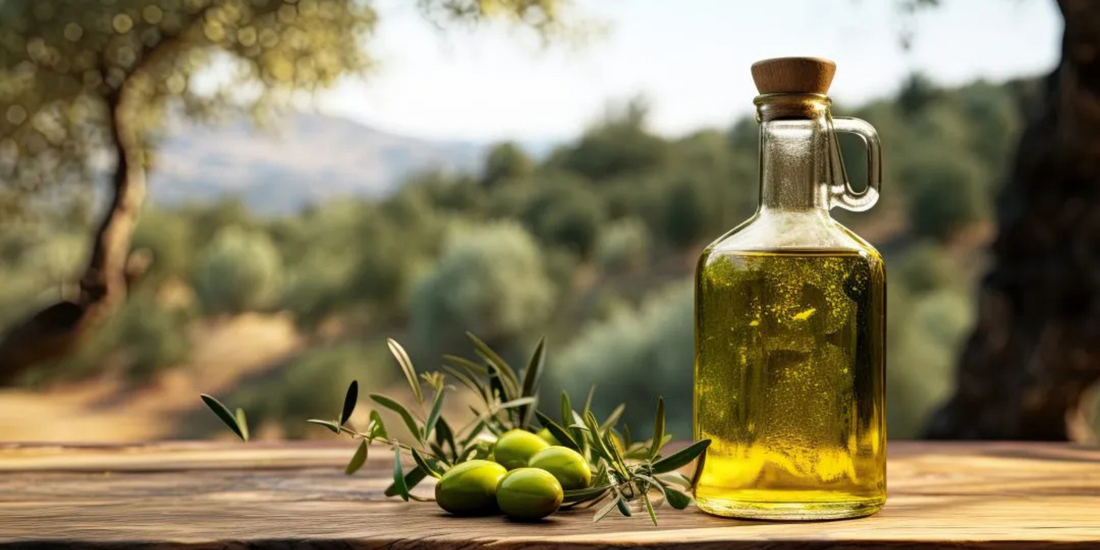Why Is Olive Oil from Jerusalem Considered Liquid Gold?

Jerusalem, a city renowned for its spiritual and historical significance, is also home to one of the world’s finest natural products: olive oil. The olive oil from Jerusalem is not just an ordinary culinary ingredient but a symbol of heritage, tradition, and exceptional quality. Its rich history, combined with its unparalleled benefits, has made it a sought-after product globally. This article explores the origins, production methods, benefits, and cultural significance of olive oil from Jerusalem.
The Historical Legacy for Olive Oil from Jerusalem
Olive Oil in Ancient Times
The story of olive oil in Jerusalem dates back thousands of years. Olive trees have been cultivated in the region since ancient times, with mentions of olive oil in religious texts and historical records. In biblical accounts, olive oil is often referred to as a sacred substance used for anointing and lighting lamps. Its significance in religious ceremonies highlights its value and purity. The olive tree itself is a symbol of peace, longevity, and resilience, making it an integral part of Jerusalem’s identity.
A Living Testament
One story often told among local farmers involves an ancient olive tree in the heart of Jerusalem that has been producing olives for over 1,000 years. This tree stands as a living testament to the resilience and vitality of the region’s olive-growing traditions.
Unique Growing Conditions for Olive Oil from Jerusalem
Climate and Soil
What sets Jerusalem’s olive oil apart is the unique combination of climate, soil, and traditional farming methods. The Mediterranean climate, with its hot summers and mild winters, provides ideal conditions for olive trees to thrive. The rocky, mineral-rich soil in the region adds a distinct flavor to the olives, giving the oil its characteristic taste.
Traditional Farming Practices
Furthermore, many farmers in Jerusalem rely on age-old techniques passed down through generations, ensuring the preservation of authenticity and quality.
Read also: WATANY Olive Oil Jerusalem Palestine – 1L
Traditional Production Methods
Hand Harvesting and Milling
The production of olive oil in Jerusalem is a meticulous process that reflects the dedication of local farmers. The journey begins with the careful harvesting of olives, typically done by hand to prevent bruising the fruit. The olives are then washed and crushed, often using traditional stone mills. This method, combined with cold pressing, ensures that the oil retains its natural flavor, aroma, and nutrients.
Sustainable Practices
One of the most remarkable aspects of olive oil production in Jerusalem is the emphasis on sustainability. Many producers avoid the use of chemicals, adhering to organic farming practices. This commitment not only protects the environment but also results in a healthier, more natural product.
For example, the Abu Ayesh family, who have been cultivating olives for generations, pride themselves on using zero-waste techniques. Olive pits are repurposed as biofuel, and leftover pulp is used as natural fertilizer, showcasing their dedication to sustainability.
Health Benefits of Jerusalem’s Olive Oil
Why It’s Considered “Liquid Gold”
Olive oil from Jerusalem is celebrated not just for its exquisite taste but also for its numerous health benefits. Rich in monounsaturated fats, antioxidants, and vitamins, it is a cornerstone of the Mediterranean diet.
- Heart Health: Reduces LDL and increases HDL cholesterol, improving cardiovascular health.
- Anti-inflammatory: Oleocanthal compounds help reduce the risk of chronic diseases.
- Skin & Hair Care: Nourishes, moisturizes, and strengthens naturally.
- Digestion: Promotes gut health and supports balance of bacteria.
Uses of Olive Oil from Jerusalem in the Kitchen
A Culinary Staple
The versatility of olive oil from Jerusalem makes it a staple in kitchens around the world. Its robust yet balanced flavor profile enhances a wide range of dishes. From drizzling over fresh salads and roasted vegetables to dipping bread, the possibilities are endless.
Authenticity in Traditional Dishes
For instance, a traditional Jerusalem dish, “Musakhan,” made with sumac-spiced chicken and caramelized onions, is incomplete without a generous drizzle of local olive oil. Its rich flavor adds depth and authenticity to the dish.
Read also: What are The Unique Qualities of Palestinian Olive Oil?
Cultural and Spiritual Significance
Olive Oil as a Symbol
In Jerusalem, olive oil is more than just a product—it is a cultural and spiritual emblem. Olive trees symbolize peace and unity and are deeply rooted in local heritage.
Festivals and Community
The annual olive harvest season in Jerusalem is a time of community celebration. Families and neighbors come together to gather olives, strengthening bonds and preserving traditions. Events like the “Jerusalem Olive Festival” celebrate this heritage with pressing demonstrations, tastings, and cultural showcases.
How to Choose Authentic Jerusalem Olive Oil
Tips for Consumers
- Check the Label: Look for origin certifications.
- Cold-Pressed: Ensures nutrients and taste are preserved.
- Packaging: Dark glass bottles protect quality.
- Taste & Smell: Fresh, fruity aroma with peppery finish.
The Future of Olive Oil from Jerusalem
Innovation Meets Tradition
As the world moves toward sustainable choices, producers in Jerusalem are blending modern technology with ancient practices, ensuring quality and authenticity remain intact.
In conclusion, olive oil from Jerusalem is more than a culinary product—it’s history, culture, and wellness combined. Choosing it means supporting a timeless heritage that continues to thrive in the heart of the Mediterranean.
